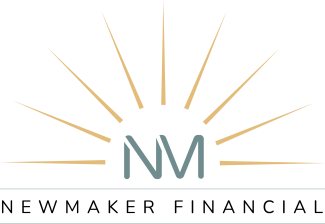So you’re doing the whole adult thing that everyone is always talking about: you’re making the money, paying the bills, doing the do. Then one day you remember the story of the ant and the grasshopper and you realize with growing horror that you’re living like the grasshopper by not saving and preparing for the future. And the grasshopper, like, freezes to death or something at the end of the story. Terrifying.
You realize your money habits need some honing so that you don’t share grasshopper’s bitter fate, so you start where a lot of us do: budgeting. You hop online to research some budgeting ideas and you are bombarded with apps, calls to stop spending money on fun things, budgeting techniques that require military-level adherence, and for some at least one person yelling at you about avocado toast.
So you shut it off and go back to your happy grasshopper life, because not freezing to death isn’t worth all that. But inside is a growing concern that you aren’t doing, or maybe can’t do, the things that will allow you to someday gain financial freedom. If this is you, rest assured that you are in good company. 73% of people in the United States don’t follow a budget. [i]
Grasshoppers are known for jumping
and their poor money habits
Why? Because budgets are exhausting. I’m a CFP® with twelve years of industry experience and I can tell you that with absolute certainty. Don’t get me wrong, budgeting is important, but not everyone loves pouring over their life every month with a spreadsheet. If Excel didn’t knock your socks off in high school it sure as heck isn’t going to be how you spend the first Saturday of every month. And do you know what? That’s ok.
I am in no way knocking people who benefit from spreadsheets, I’m a spreadsheet man myself, I just don’t bring it up on the first date. All I’m trying to say is that spreadsheets and Every Dollar are pretty hardcore versions of budgeting, and there are alternatives. Many people have found comfortable ways of budgeting that work with their personality and goals when they realize that budgeting is mostly a mindset.
The first step in this mindset is realizing that any money saved is money that’s truly yours, and we should pay ourselves first.
For anyone not familiar with paying yourself first, the idea is that you pay into accounts that will remain yours like 401ks, investments, and savings. Paying down debt on assets that gain value like a house are also considered paying yourself. Treat these payments like you would the phone bill, making small but meaningful contributions to them over time. Just like the phone bill, eventually you won’t miss the money. Unlike the phone bill, the money that you pay yourself with will eventually grow, and that growth is yours, too.
As you incorporate these habits into your spending, take your discretionary income, the stuff you want to spend every month that makes life worth living, and put it in a separate account (or run it through a credit card that you pay off every month, many cards now offer a breakdown of your spending, which will help for the next step). This way you don’t have to keep track of every little thing, but you also know when you are overspending.
If you find yourself consistently spending beyond what you allot yourself then a one-time budget to understand what changes need to be made will be useful. You can turn to a spreadsheet, keep track of your spending in a money journal, or simply pay greater attention to what you spend money on. The important thing here isn’t how you do it (I still keep track of most of my spending in my head), just that you find some way to track that works well for you.
The point here will not be to tighten the belt, but to look at everything through the “joy per dollar” lens. That streaming service you watch 8 times a year? It brings little joy, and might not be worth the 12 dollars you spend on it per month. The clothes budget you have because you are a very fashionable person and everyone knows it? Let that one stay because to you fashion is life, and that’s ok.
The goal here is to reduce the budget where we can with a much smaller reduction in quality of life. If you are just paying attention to the budget and not strictly tracking it, ask yourself how much joy the purchase you are about to make is going to give you. You might be surprised how often we spend money with minimal joy, just to have something to do. These recommendations work best for the discretionary part of your budget, but don’t forget to check and see if you are actually using the monthly services you are signed up for, too.
One thing to consider is what I like to call The Cheeseburger Approach. We, as a culture, have a pretty good barometer for how much a cheeseburger should cost. It’s unlikely we would spend $200 on a cheeseburger, it offends our burger sensibilities. Not everything we purchase can be held in our hands and eaten with fries, however, and when it comes to intangible goods we often don’t know what we are paying for or how much we should be paying for it. By intangible goods I mean something like the safety and comfort we feel when we have an emergency savings, or the freedom we feel when we have no debt.
How much would you pay to escape some of the financial anxiety you feel? The answer doesn’t need to be exact, but having an idea of how much these intangible things are worth will help you. When you begin quantifying these things it is easier to assign a price to them, as if it were a cheeseburger. If saving a hundred a month puts us on the path towards reducing anxiety, forgoing a few fun things won’t be a chore, it will be an exchange. You’ll be getting something real from the savings you are putting away (a reduction in anxiety), and you won’t have to wait decades for it to start bettering you. If you do it right, you might even get more than you lose, adding joy even as we are cutting the budget.
Joy per dollar and the Cheeseburger Approach are both what’s important when it comes to budgeting, and both drive towards one question: How can I live my best life with the money I have? I like this question more than frugality because it’s about using your money to self-actualize, and studies found when you are self-actualizing you are more likely to be happy.[ii] Being happier should be the point of every budget.
And for the record, the ant isn’t always the aspirational one. In a fable credited to Aesop the ant is a bad guy for constantly plundering the land to stock up on supplies for himself. It’s all in who tells the story, being purposeful with your money helps make sure you’re the one telling yours.
[i] https://www.cnbc.com/2022/04/29/its-ok-to-not-follow-a-budget-says-a-financial-therapist.html#:~:text=In%20fact%2C%2073%25%20of%20Americans,OppLoans%2C%20a%20loan%20servicing%20company.
[ii] https://www.pursuit-of-happiness.org/history-of-happiness/abraham-maslow/#:~:text=Abraham%20Maslow%20refers%20to%20peak,being%20and%20satisfaction%20with%20life.
*Content in this material is for general information only and not intended to provide specific advice or recommendations for any individual.

